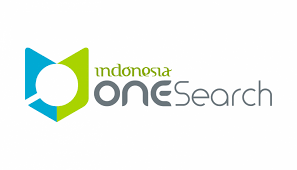Industrial, managemental, and company-size determinants of tax avoidance in the coal mining sector
DOI:
https://doi.org/10.52300/jemba.v4i2.15096Keywords:
company size, institutional ownership, managerial ownership, tax avoidanceAbstract
This study aims to determine whether there is an influence of institutional ownership, independent managerial ownership and company size on tax avoidance in coal sub-sector mining companies listed on the Indonesia Stock Exchange for the period 2017-2022. This study uses quantitative descriptives. The sampling technique used is purposive sampling with a total sample obtained of 8 companies within 6 years so that 48 samples were obtained after the criteria data were taken. The analysis used is panel data analysis using Eviews 9 software. The results of the analysis test state that the variables of institutional ownership, independent managerial ownership, and company size have an influence on tax avoidance simultaneously. Partial testing states that the variables of institutional ownership and independent managerial ownership do not have a positive effect on tax avoidance, while company size affects tax avoidance
Downloads
References
Alkurdi, A., & Mardini, G. H. (2020). The impact of ownership structure and the board of directors’ composition on tax avoidance strategies: empirical evidence from Jordan. Journal of Financial Reporting and Accounting, 18(4), 795–812.
Aluchna, M. (2023). Agency Theory. In Encyclopedia of Sustainable Management (pp. 87–95). Springer.
Ashari, M. A., Simorangkir, P., & Masripah, M. (2020). Pengaruh pertumbuhan penjualan, kepemilikan institusional dan kepemilikan manajerial terhadap penghindaran pajak (tax avoidance). Jurnal Syntax Transformation, 1(8), 488–498.
Blanchard, O., Romer, D., Spence, M., & Stiglitz, J. E. (2012). In the wake of the crisis: Leading economists reassess economic policy. MIT Press.
Chandra, B., & Cintya, C. (2021). Upaya praktik Good Corporate Governance dalam penghindaran pajak di Indonesia. Jurnal Ekonomi Modernisasi, 17(3), 232–247.
Crouzet, N., & Mehrotra, N. R. (2020). Small and large firms over the business cycle. American Economic Review, 110(11), 3549–3601.
Dakhli, A. (2022). The impact of ownership structure on corporate tax avoidance with corporate social responsibility as mediating variable. Journal of Financial Crime, 29(3), 836–852.
Firmansyah, A., Febrian, W., Jadi, P. H., Husna, M. K., & Putri, M. A. (2021). Respon investor atas tanggung jawab sosial tata kelola perusahaan di Indonesia: perspektif resource based view. E-Jurnal Akuntansi, 31(8), 1918–1935.
Ganiarti, A. (2022). Analysis of tax aggressiveness in mining companies: Study of Indonesia. Accounting and Sustainability, 1(1).
Guluma, T. F. (2021). The impact of corporate governance measures on firm performance: the influences of managerial overconfidence. Future Business Journal, 7(1), 50.
Huang, D. Z. (2022). Environmental, social and governance factors and assessing firm value: Valuation, signalling and stakeholder perspectives. Accounting & Finance, 62, 1983–2010.
Januwito, F. (2022). Pengaruh ukuran perusahaan, Profitabilitas, capital intensity dan pertumbuhan penjualan terhadap tax avoidance. Prosiding: Ekonomi Dan Bisnis, 2(1), 343–353.
Jensen, M. C., & Meckling, W. H. (2019). Theory of the firm: Managerial behavior, agency costs and ownership structure. In Corporate governance (pp. 77–132). Gower.
Komara, A., Ghozali, I., & Januarti, I. (2020). Examining the firm value based on signaling theory. 1st International Conference on Accounting, Management and Entrepreneurship (ICAMER 2019), 1–4.
Latofah, N., & Harjo, D. (2020). Analisis Tax Awareness Dalam Upaya Meningkatkan Kepatuhan Wajib Pajak Di Kantor Pelayanan Pajak Pratama Bekasi Barat. Jurnal Pajak Vokasi (JUPASI), 2(1), 52–62.
Nahum, N., & Carmeli, A. (2020). Leadership style in a board of directors: implications of involvement in the strategic decision-making process. Journal of Management and Governance, 24(1), 199–227.
Ningrum, E. P. (2021). The Role of Institutional Ownership, Independent Board of Commissioners, And Managerial Ownership on Earnings Management in Manufacturing Companies. International Journal of Contemporary Accounting, 3(2), 153–170.
Pratomo, D., & Rana, R. A. (2021). Pengaruh kepemilikan institusional, komisaris independen dan komite audit terhadap penghindaran pajak. JAK (Jurnal Akuntansi) Kajian Ilmiah Akuntansi, 8(1), 91–103.
Rizqi, R. M., & Pratiwi, A. (2024). Tax Avoidance Assessment In Relation To The Institutional Ownership, Size Of The Company, And Profitability. Jurnal Riset Akuntansi Terpadu, 17(1), 56–73.
Safuan, S., Habibullah, M. S., & Sugandi, E. A. (2022). Eradicating tax evasion in Indonesia through financial sector development. Cogent Economics & Finance, 10(1), 2114167.
Salehi, M., Arianpoor, A., & Naghshbandi, N. (2022). The relationship between managerial attributes and firm risk-taking. The TQM Journal, 34(4), 728–748.
Sandy, S., & Lukviarman, N. (2015). Pengaruh corporate governance terhadap tax avoidance: Studi empiris pada perusahaan manufaktur. Jurnal Akuntansi Dan Auditing Indonesia, 19(2), 85–98.
Sari, H. Y., Yuniarti, E., & Rachman, A. A. (2022). Pengaruh pertumbuhan aset, ukuran, dan profitabilitas perusahaan terhadap penghindaran pajak (tax avoidance) pada perusahaan sektor pertambangan yang terdaftar di BEI periode 2017-2020. Jurnal Akuntansi Bisnis Dan Ekonomi, 8(1), 2167–2178.
Sugiyono. (2017). Metode Penelitian Bisnis (Pendekatan Kuantitatif, Kualitatif, Kombinasi dan R&D). In Metodelogi Penelitian.











